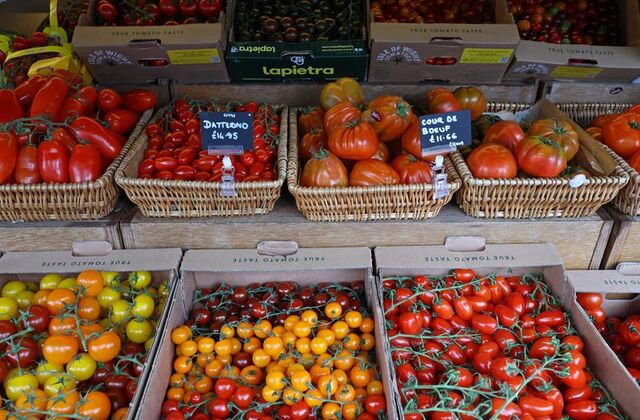New border checks under Brexit are reducing consumer choice and jeopardising the UK’s food security, The Guardian reports.
A joint letter from the Fresh Produce Consortium (FPC) and the Horticultural Traders Association (HTA) has called for an urgent meeting with the government over the continuing problems their members face importing plants and cut flowers under the current border system.
The letter from the HTA, which represents gardeners and retailers, and the FPC, which represents 700 fresh produce suppliers and distributors, comes six months after the introduction of new border checks on plant and animal products entering the country from the EU post-Brexit.
From April 30 this year, plants for planting and some cut flowers entering Britain from the EU began to be checked at border posts across Britain. Previously, plants were checked at destination, allowing nurseries and gardeners to store them in controlled conditions on site.
The changes at the border, introduced to replicate checks on British exports to Europe, were designed to improve Britain’s biosecurity and prevent the spread of disease between plants in the country.
But in their letter, both groups said trade in edible plants such as fresh fruit and vegetables, and non-edible plants including finished plants, bulbs and seeds, had faced “significant challenges,” with importers facing higher costs, increased risk of delayed or damaged orders, and burdensome paperwork. It also added:
This situation has led to reduced consumer choice, strained business relationships, a tarnished UK business reputation, diminished confidence in border processes, compromised food security, and setbacks in achieving our environmental targets.
Delivery costs increased
John Adams, owner of Hertfordshire-based plant wholesaler Jane Adams, said he had stopped importing olive trees into the UK because of the new border regime, while lavender imports had also become much more difficult because of the level of checks.
Adams, whose company has been importing plants and cut flowers for more than 50 years, says the rules have increased delivery costs by about 10 per cent and orders have started to arrive with delays that have sometimes lasted between seven and 24 hours. Another major retailer, who did not wish to be named, said:
Due to border concerns and other pressures on businesses in the environmental horticulture sector, we are seeing the choice of plant products imported being reduced by up to 25% in some cases in the last two years.
UK fruit and vegetable growers are also reliant on imports from the EU, with many buying seeds and young plants from the continent which are then grown in the UK for food production.
Delays due to border checks
Earlier this year, the National Farmers Union warned that the inspections threatened farmers with an “existential threat,” warning that young plants could face long delays and could be damaged or destroyed, which could affect future harvests.
In August, the British Tomato Growers Association said lengthy seed inspections at the border were threatening yields, while the Cucumber and Pepper Growers Association (CPGA) said significant delays were causing “costly crop delays.”
The letter also sets out 10 urgent government actions that could improve the flow of goods from the EU to the UK while protecting businesses from increased costs.
These include agreeing a plant health agreement with the EU based on mutual recognition of standards, removing barriers in the current system of border posts that prevent inspectors from carrying out inspections after 5 p.m., and calling for inspections to meet the agreed four-hour service level agreement set out by the government.
The letter also calls for the abolition of the £145 fee charged at the government-run border control post at Sevington, Kent, which handles all inspections passing through the Port of Dover and the Channel Tunnel.
The letter states that charging should be suspended for 12 months while the economic impact of the border policy is analysed.
A spokesman for the Department for Environment, Food and Rural Affairs said:
Protecting UK biosecurity remains one of our key priorities and checks on certain imports are essential to prevent outbreaks of diseases that would severely damage our food supply, the environment and future trade. Since coming into power, ministers are working closely with industry, trade partners and enforcement agencies to minimise disruption. This includes resetting our relationship with Europe and seeing a new veterinary agreement to improve our trade ties.
